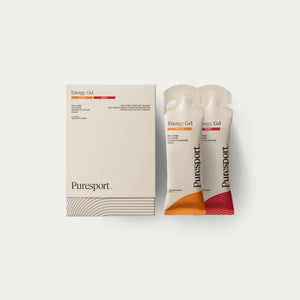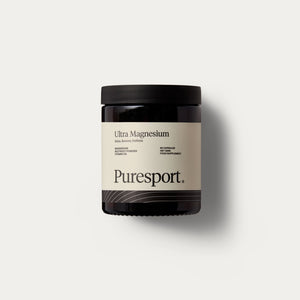Are You Unknowingly Hurting Your Gut?
A healthy gut is the foundation of a healthy body. When your microbiome is healthy, it can benefit almost all other systems in your body. An unbalanced gut can also cause problems in your metabolism and your mood.
Your gut health is directly affected by what you eat. A damaged gut can cause many digestive problems, including IBS, SIBO, Crohn's Disease, digestive irregularity, and stomach pain; therefore, it is crucial to support your gut health by eating healthy foods or taking probiotic supplements.
It is possible for a person to be unaware of foods and habits, which unknowingly hurt their gut health. A person might be consuming foods that cause bad gut health; so keep reading to know whether you are consuming the foods that weaken your gut health and what changes can you make to your diet to improve it.
What foods are hurting your gut?
Eating healthy is one of the best acts you can do to improve gut health; there are some foods you can eat to support better gut health, but the following is a list of foods you should try to avoid. These eleven foods can damage or disrupt your microbiome and should be eliminated from your diet.
-
Sugar
Although refined white sugar has a bad reputation, it turns out that any form of sugar can be harmful to your gut health.
Participants of a study that was conducted to understand the effects of sugar on digestion found out that high-sugar diets increase constipation and worsen the overall gut function. The good news is that not all sugars are bad for the gut. Foods which are naturally high in sugars like fruits can actually have a positive effect on the microbiome, especially if you eat a diverse range of fruit and vegetables. Instead, it’s foods that are high in refined or processed sugars, like ultra-processed foods which have a negative impact on your gut microbiome… read on for more.
-
Processed Foods
We all know that processed foods can harm our health, and as we mentioned above, they can be high in sugars which can have a negative effect o the gut microbiome. But processed foods can harm the gut in other ways too.
Emulsifiers in highly-processed foods disrupt the gut microbiota. Many people developed colitis and metabolic disease; therefore, processed foods should be avoided for satisfactory gut health.
-
Soy
Soy is an increasingly popular meat alternative, and while it may be a more environmentally-friendly alternative, som people can have difficulties digesting it. This is because some sot products are highly processed, which means it can be hard for our bodies to break it down.
Eating high levels of soy can cause damage to your microbiome. The ingredient has been proven to lower the crucial Bifidobacteria and Lactobacillus, the two essential strains for a healthy gut.
-
Dairy
Dairy is a common one to try and avoid if you have digestive or gut issues, even if you're not lactose intolerant. Studies have shown that dairy is not a good choice for your stomach. Within days, dairy consumption can alter the bacterial composition of your gut. It allows strains that are linked to inflammation and intestinal disease.
-
Red Meat
Research has shown that eating red meat can reduce the number of microbes in your gut. According to a Cleveland Clinic Study, the red meat compound cratinine causes trimethylamine N-oxide (TMAO) creation when it exposes to gut bacteria. Higher levels of TMAO are associated with a higher risk of cardiovascular disease and early death.
-
Gluten
Gluten, a protein found in several grains like wheat and barley, has recently received a bad reputation. Unfortunately, this reputation is well-deserved. Studies have shown that gluten can cause Celiac disease.
Gluten can cause stomach pain, bloating, and fatigue, even in people without the disease. Research also shows that Gluten-free eating lowers insulin resistance, inflammation, weight gain, and obesity.
-
Eggs
New research suggests that eggs could be linked to heart disease. Researchers at Cleveland Clinic found that certain eggs can cause heart disease.
Eggs are rich in protein, which encourages the growth of gut bacteria. This leads to developing a chemical compound that causes clotting, which ultimately increases the risk of stroke and heart attack.
-
Genetically Modified Organisms (GMOs)
Scientists have created genetically modified organisms (or GMOs) to help cultivate crops, which are resistant to diseases and pests.
The most popular GMOs include wheat, soybeans, and corn. GMOs studies show that disease-resistant GMOs have devastating effects on your gut health. GMOs can decrease the number of beneficial gut bacteria.
-
Nightshades
Although plants in the nightshade group, such as tomatoes, eggplants, potatoes, and bell peppers, are considered essentials of a healthy diet plan, a key ingredient in all these foods may cause serious digestive problems.
Naturally occurring glycoalkaloids in all nightshades cause intestinal inflammation and a "leaky gut" condition in mice. This raised concerns about their effects on the human digestive system.
-
Tap Water
Obviously, drinking enough water to stay hydrated is essential, but knowing where your water comes from is also important. Research has shown that tap water is treated with chlorine and other chemicals.
Chlorinated water can affect your gut's microbiota and lead to colorectal cancer. The best thing to avoid bad gut health is to use filtered water.
-
Artificial Sweeteners
People, who are trying to lose weight, resort to artificial sweeteners. After all, what's more attractive than the zero-calorie treats? It turns out that there are many other reasons.
Researchers are increasingly pointing to a variety of factors. Artificial sweeteners may cause adverse effects on gut, including changes in the composition of the gut microbiome, higher rates of metabolic disease, and increased glucose intolerance.
The Importance of Cleaning Your Gut
Consider this for a moment: Your body is shared with approximately 100 trillion other organisms. These bacteria can be found in your skin, nose, and mouth but most of them are located in your digestive system, especially in your large intestine.
Can you imagine 100 trillion organisms in your body? These bacterial cells outweigh human cells by approximately 10 to 1.
These bacteria are responsible for allowing you to absorb nutrients from your food. They help your immune system understand what’s good and bad. They protect your genes by stopping toxic material from getting through your gut tissue.
These good bacteria are a crucial component of the overall health. There will always be some bad bacteria, but the good ones should be dominant. You will often find harmony if your gut and other body parts is balanced.
If there is bacterial imbalance (insufficient beneficial germs), this can lead to suboptimal health in the gut. If not corrected or supported, it can also affect your overall health.
The Best Foods to Restore Gut Health
You might feel overwhelmed after reading everything mentioned above. It is impossible to avoid all these ingredients, especially if you love a good pizza slice or ice cream, but you can reduce your intake and add these foods to your daily diet.
You can use either a probiotic supplement to help your gut bacteria thrive, or you can eat food that is rich in probiotic substances. This will make you feel healthier and will increase your good bacteria. These foods can help you on your journey to restore gut health.
-
Fiber-Rich Foods
Remember that good bacteria found in your gut are living organisms. They need food, just like all living organisms, to thrive or just survive. High-fiber foods are good for gut health because they provide prebiotic fiber, the food source for probiotic bacteria.
A study showed that certain bacterial diseases never develop if you eat a lot of fruits and vegetables.
This list includes high-fiber foods that are good for your gut bacteria:
- Raspberries
- Green peas
- Chickpeas
- Lentils
- Whole grains
- Broccoli
- Beans
- Artichokes
- Apples
- Bananas
-
Inulin-rich Foods
Prebiotic fibers such as inulin feed your good bacteria and promote healthy gut flora. Inulin is unable to be broken down in small intestines. It can travel through your lower GI tract. Inulin-containing foods include:
- Asparagus
- Chicory root
- Garlic
- Onions
- Jerusalem artichoke
- Jicama
- Yacon root
They are just a few inulin-rich foods that provide prebiotic fuel. They are good for your gut bacteria and can also help manage diabetes.

-
Fermented Foods
Fermented food means the food items, which undergo fermentation – a process when yeast and bacteria break down the sugars in them.
Here are some examples of fermented foods: (These foods contain lactobacilli, a type of bacteria that can benefit your health.)
- Kimchi
- Yogurt
- Kefir
- Tempeh
- Sauerkraut
- Kombucha
Research has shown that people who consume a lot of yogurt have more Lactobacilli in the intestines. They also have fewer Enterobacteriaceae. This type of bacteria can cause inflammation and other chronic conditions.
Similar results have been found in various studies that yogurt can be beneficial for intestinal bacteria and reduce symptoms of Lactose intolerance.
Yogurt may enhance the composition and function of the microbiome. Many yogurts, particularly flavoured yogurts, contain high levels of sugar.
It is the best to select plain yogurt, without sugar, or flavored yogurt with least possible quantities of added sugar. These yogurts are made from milk and bacteria mixtures (also known as "starter cultures").
To reap gut health benefits, ensure that the label mentions "contains active cultures." Additionally, fermented soy milk can promote beneficial bacteria such as Bifidobacteria or lactobacilli. It may also decrease the number of harmful bacteria. Kimchi may benefit the gut flora.
-
Prebiotic Food
Prebiotic foods encourage the growth of beneficial bacteria within your gut. These complex carbs are mostly fiber and complex carbohydrates that the human body cannot digest. They are broken down by bacteria in the intestine and use them as a fuel source.
Many fruits, vegetables, and whole grains are rich in prebiotics. Resistant starch may also be used as a prebiotic. This starch type is not absorbed in the small intestine. Instead, it passes into the large intestinal tract, where the microbiota breaks it down.
Numerous studies have demonstrated that prebiotics promote many beneficial bacterial growths. Prebiotics can also be used to lower insulin, triglyceride, and cholesterol in obese people. And, it can also prevent type 2 diabetes and heart disease.
-
Eat Whole Grains
Whole grains are rich in fiber and indigestible carbohydrates such as beta-glucan. These carbs do not get absorbed in the small intestine. Instead, they make their way to large intestines to support the growth of beneficial bacteria.
According to research, whole grains may promote the growth of Bacteroidetes, Lactobacilli, and Bifidobacteria in humans. Studies also show that whole grains increase feeling of fullness, reduced inflammation, and decrease the heart disease risk.
Some studies have shown that gluten-containing grains, such as wheat, barley and rye, can adversely impact gut health by increasing intestinal permeability and inflammation in some individuals.
This is mainly true for people with celiac disease and gluten sensitivity; however, further research is required to see if eating gluten-rich grains may affect the microbiome of healthy adults.
-
Plant-Based Diet
Animal-based diets promote different types of intestinal bacterial growth than plant-based diets.
Numerous studies have shown that vegetarian and vegan diets can benefit the microbiome. This may be because of their high fiber levels.
A study in 2013 showed that a vegetarian meal resulted in lower levels of disease-causing bacteria, reduced body weight and inflammation, and decreased cholesterol.
A 2019 review found that plant-based foods contain a few nutrients that can boost the levels of beneficial bacteria as well as decrease harmful strains to support gut health.
-
Polyphenols
Polyphenols are plant-based compounds, which have many health benefits, including low blood pressure, inflammation, cholesterol, and oxidative stress.
Human cells can't always digest polyphenols. They are not absorbed well, so most polyphenols end up in the colon, where gut bacteria process them.
These are some examples of foods high in polyphenols: dark chocolate, cocoa, grape skins, onions, red wine, green tea, blueberries, broccoli, and almonds.
Cocoa polyphenols can give rise to the amount of Bifidobacteria, lactobacilli, and Clostridium. These microbiome changes are also associated with lower levels of C-reactive and triglycerides, which are markers of inflammation.
The effects of the polyphenols found in red wine are similar to those found in people with metabolic syndrome.
-
Probiotic Foods
Probiotics are living microorganisms that are usually bacteria and provide specific health benefits when they're consumed. In most cases, probiotics won't permanently colonize the intestinal tract.
They may benefit your health because they can alter the microbiome composition and support your metabolism.
Seven studies were conducted before it was found that probiotics had little impact on healthy individuals' gut microbiome composition.
There is evidence that probiotics can improve the microbiome composition of people with certain diseases.
A review of 63 studies revealed mixed evidence regarding the effectiveness of probiotics in altering the microbiome; however, the best probiotic effects were observed in the restoration of the microbiome back to its healthy state after it gets compromised.
Some studies have shown that probiotics may improve the functioning and production of certain types of chemicals. Consuming more probiotic-rich foods such as yogurt, kefir, and sauerkraut can help increase your probiotic intake.
You can also consider taking a probiotic supplement. Talk to your doctor before you start supplementation, especially if you take any other medications or you are experiencing a significant underlying medical condition.

How to restore gut health with supplements?
First, you can start by eliminating the foods you're guilty of eating as a part of your daily diet to foster a healthy microbiome, which will help improve your overall health. Along with these changes, taking high-quality gut health supplements will help repopulate healthy gut bacteria.
While research continues, you may be able to improve your gut health by adding a probiotic or a prebiotic supplement. Prebiotics are foods that encourage the development of beneficial bacteria, while probiotics can be used to support healthy bacteria.
As awareness continues to grow about the importance of good gut health, probiotic supplements are becoming more popular; however, people should not take probiotics with severe illnesses or weak immune systems.
Probiotics are not always high-quality and beneficial for health. Talk to your doctor if you are interested in probiotic supplements.
Although these supplements are generally safe, particularly for healthy individuals, but there is a greater risk of adverse effects in persons with compromised immune systems.
Finding the Best Supplements to Restore and Maintain Good Gut Health
As mentioned above, probiotic supplements are the best to restore gut health. Since gut is the cornerstone of good health, you must use the best supplements to improve and maintain gut health.
Puresport offers one of the best gut health supplements: "Trust Your Gut." This supplement is great for optimising your gut for optimal mind and body functions.
It's combined with the scientifically-formulated Digestive Enzyme Mix with turmeric root, and turmeric + ginger to balance the microbiome (boosts energy, immunity, skin and mood), and regulate digestion to prevent IBS, bloating, and acid reflux.
It also includes other ingredients like Liquorice Root and Reishi mushroom, a powerful gut healer. Additionally, it can be taken with any CBD capsule, oil, topical, or other natural product.
Conclusion
For many aspects of your health, your gut bacteria are vital. Numerous studies have shown that chronic diseases can be caused by a disturbed microbiome. Consuming whole foods is the best way to maintain a healthy microbiome.
Although diet is the most critical defense mechanism, scientifically-backed and high-quality probiotics and gut health supplements like Puresport's Trust Your Gut can help you maintain your gut health and the overall health.








